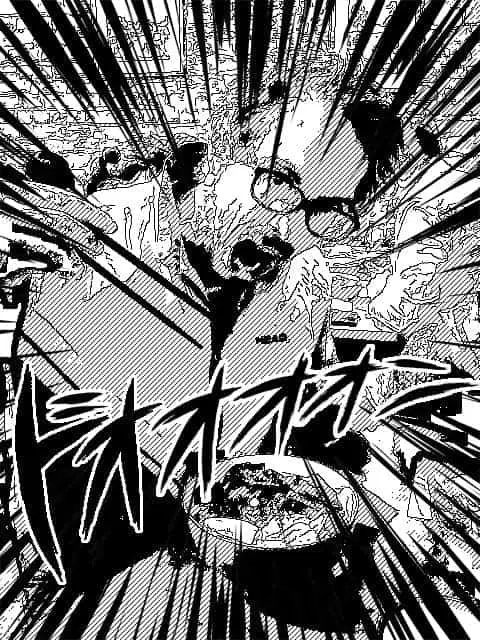Best Ever Japanese Games For Families and Friends
Japanese people may have a reputation for being relatively straight laced, but when it comes to having fun, they get serious. Life’s too short for not many games. Why have just hide-and-seek, when you could also have Keidoro? Why have only Western style playing cards, when you could also have Hanafuda. These are questions as unanswerable as “what is the sound of one hand clapping”. If you are a fan of Japanese culture, you’ve got to find time in your life for Japanese games!
1. Shiritori しりとり (Steal the Ending)
This one takes out the top spot because it is easy, you can do it anywhere, and it doesn’t require anything to play. Shiritori is a simple word game that can be played in Japanese or English.
How to Play Shiritori
Choose a topic. Eg “animals”, “foods”, “places”. The first player says a word, such as “dog”. The second player has to make a word that ends in the last letter of the word, such as “gorilla”. The third player makes a word with the last letter of that word, such as “antelope”. If anyone says a word that ends with the letter “N” they are out. If they can’t think of a word they are out. The last person left is the winner.
Why you should play Shiritori
This game is perfect for travelling. It helps with language development by expanding vocabulary and making you think about spelling.
2. Suika-Wari スイカ割り(Break The Watermelon)
This is the classic summertime game.
How to play Suika-Wari
Place a watermelon on a sheet on the ground. One-by-one people are given a stick, blindfolded and directed in the general direction of the watermelon, which they must attempt to smash with the stick. It’s kind of like the Japanese version of a pinata.
Why you should play Suika-Wari
It’s simple and fun. Everyone gets to eat the watermelon at the end. It’s great as an outdoor summer game. It doesn’t cost you more than the price of a watermelon.
3. Babanuki ババ抜き (Pick the Old Lady)
This is a simple card game that can be played from kids from around 4-5 years and up.
How to play Babanuki
Deal out every card in the deck, including only one joker, to all the players. Each player discards any pairs they have in their hand. Then each person takes it in turns to take a card from the person next to them. If the card they draw makes a pair with something already in their own hand, the player discards the pair. The goal is to get rid of all your cards. The person that is left holding the joker in the end is the loser.
Why you should play Babanuki
It’s easy enough for most ages to be able to participate, but fun enough for any age. You have the psychological tension of people facing each other while they exchange cards. Bluffing is a feature. All you need is a set of standard cards to play.
4. Jyan-ken じゃんけん Rock Paper Scissors
This one should probably be number one really, considering how much Jyan-ken is an integral part of Japanese society. Any time people want to decide the order of someone doing something in Japan, they use Rock Paper Scissor.
But it’s not the sort of game that you play for more than a few minutes, so I haven’t put it at the top for our purposes.
How to play Jyan-ken
All you really need to know is what beats what:
Here’s a video that takes you through it:
Why You Should Play Jyan-Ken
Jyan-Ken is as much as a life skill, used for deciding the order of things, as it is a game!
5. Kei-doro ケイドロ (Cops and Robbers)
This is a simple game for groups of children.
How To Play Keidoro
Players are divided into groups of “Cops” (Kei) or “Robbers” (Doro). At the start of the game the cops count out time while the robbers go and hide. When time is up, the cops go out searching for the robbers. When they find one, they escort the robber to a pre-assigned “prison”. The Robber must stay in the prison until another robber comes to free them. The game ends when all the robbers have been captured.
Why you should play Keidoro
This is a great game for teaching teamwork and for getting children outside and moving.
6. Beigoma ベイゴマ (Spinning Tops) – Beyblades
A koma is a “spinning top” and begoma is the game of battling tops.
How to play Beigoma
Mark out a playing area. Each player launches their spinning top into the area. The winner is the person who’s spinning top spins the longest or knocks out the opponent’s spinning top from the playing area.
Why you should play Beigoma
For the sheer fun of the beautiful symmetry of a spinning top in motion!
7. Karuta かるた
Karuta is a card game that is great for teaching kids Japanese hiragana, and for getting a basic familiarity with Japanese poetry.
How to play Karuta
The cards are placed face up on the ground. A reader reads out the text on a card from the deck. Players race to find and claim the card that features the text that the reader has read.
Why you should play Karuta
Karuta is great for Japanese language development, improving memory and reflexes. The cards themselves are often works of art.
8. Hanafuda 花札 (Flower Cards)
Hanafuda is much more complex than the other games on the list, so is best for families with older children. Once again, the cards themselves are often beautiful works of art.
How to Play Hanafuda
Video instructions can be found here
Why you should play Hanafuda
Hanafuda is a bit more challenging than some of the other games on the list. You will be playing a traditional game with a long history. Nintendo started out making Hanafuda games, and they seem to know a thing or two about gaming..
Japanese Game Items
Japanoscope uses affiliate links. Which means we may receive commisions when you click on some product links. We only link to products we believe in, use ourselves or think are genuinely good. This helps us keep all of the content on the site free of charge. As Monty Python once said, “We’re selling records in the foyer. Some of us have gotta eat too you know”.

Who is behind this site?
I’m Peter Joseph Head. I lived in Japan for four years as a student at Kyoto City University of the Arts doing a Masters Degree, have toured the country six times playing music and speak Japanese (JLPT N1). I’ve written songs in Japanese and have released several albums through Tokyo label Majikick Records.
ピータージョセフヘッドです。4年間京都市立芸大の大学院として日本に住み、6回日本で音楽ツアーをし、日本語能力試験で1級を取得しました。要するに日本好きです。
